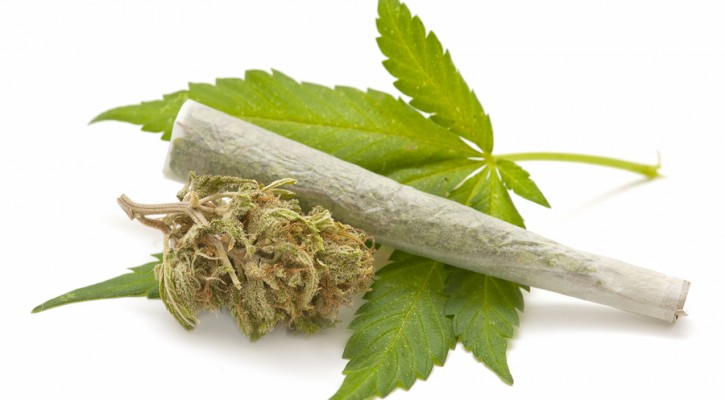Tag Archive: teens

Fewer Colorado Teens See Pot As Risky
August 18, 2014
Fewer teens, in the first survey taken since Colorado became the first state to legalize marijuana, see pot as a risky drug. Researchers can’t connect the legalization of pot to the change in attitudes but they say it isn’t helping. Read more: Fewer Colorado Teens Believe Marijuana is a Risky Drug to Use
Restricting Your Teen’s Access to Alcohol: A Guide for Parents
March 19, 2009
Restricting your teen’s access to alcohol is one of the most important things you can do for them as a parent. There are highly-publicized risks of fatal alcohol poisonings and devastating car crashes due to drinking and driving, for example. But there are other, less-publicized risks that could be equally destructive to your teen’s health and well-being, such as increased risk of sexually transmitted diseases and unintended pregnancy, violence and rape, and suicide.
Teens are ill-equipped to handle the physical, mental or emotional consequences of drinking alcohol, but they have poor impulse control and a sense of invincibility and must contend with overwhelming peer pressure. They need consistent support and structure from their parents if they are going to avoid alcohol and its attendant repercussions.
Here are some guidelines for developing a zero-tolerance policy for alcohol for your children:
- Start an ongoing dialogue early about alcohol: the risks, the ramifications, and your desire for your teen not to use alcohol. Emphasize abstinence from alcohol as part of your overall value system. Ask for a commitment not to use alcohol.
- Offer praise for good decisions and guidance for mistakes. Working together to rectify a bad grade can be good practice for dealing with bigger problems in the future.
- Help teens set short-term and long-term goals. Relate their goals to their physical endurance, mental acuity, and emotional fitness. Ask them how they think using alcohol could keep them from achieving their goals.
- Invite mentors and other people your teen would not want to disappoint into the dialogue. Ask them to support your efforts to encourage abstinence from alcohol.
- Train your children to ask, “Is it worth the risk?” Make sure they can apply the potential consequences you’ve discussed to real-life scenarios. Discuss the situations of people you know or those of people in newspaper and magazine articles and ask your teen to help you list the problems they have encountered as a result of drinking alcohol.
- Model good behavior where alcohol is concerned. While it is true that it is legal for you to drink alcohol, teens have very little tolerance for what they perceive as hypocrisy, and they often fail to make distinctions when making judgments.
- Keep alcohol locked up and out of sight. Many adolescents, and even pre-adolescents, begin experimenting with alcohol in their own homes.
- Monitor situations where temptation can occur: for example, when your teen participates in unsupervised group activities or attends events, such as weddings, where alcohol is being served to adults.
- Limit your teen’s attendance at parties, both in number and in length of time spent. Make a pact to pick your teen up at any time, from any place, with no questions asked until the following morning when you are both calm. Limit sleepovers unless they are at your house under your supervision.
- Communicate with the parents of your teen’s friends. Ask what they are doing to ensure that the children don’t have access to alcohol when they are under their supervision. Share situations (not names) that you have discussed with your teen; their responses will help you determine whether or not you are on the same wavelength regarding teens and access to alcohol. Tell them you welcome feedback on how your child behaves when you are not present and that you will not reveal the source of the information.
- Observe other parents’ efforts to restrict minors’ access to alcohol. Offer to help chaperone at events your child will attend. Be careful – even “good people” have erroneous ideas about teaching teens to “drink responsibly” under their supervision. Make sure your teen understands that even if another parent is allowing the use of alcohol, your teen does not have your permission to partake and should come home immediately.
- Keep your teen busy. Kids often get into trouble when they have too much unsupervised free time. Invest time and effort into helping your teens find safe, fun ways to spend their time, such as participating in faith-based activities.
- Adopt a trust-but-verify policy. Even “good kids” can find themselves in difficult situations. Your teen doesn’t have the benefit of your years of wisdom and experience. Explain the risks of being in the wrong situation; even if your teen doesn’t drink, being present at a party where teens are drinking can have serious consequences. Monitor your teen’s – and your teen’s friends’ – Facebook and MySpace pages.
And, last but certainly not least, realize that your teen is vulnerable to making poor choices every day. Don’t let your guard down. Finding a balance between being too controlling and allowing too much freedom will require constant effort, but it is a worthwhile endeavor. Your teen’s health and happiness may depend on it.

Alcohol Access and Your Teen – Trust but Verify
March 5, 2009
Your teenage daughter is spending the night at her friend Mary’s house. Mary’s mother seems to be a responsible, law-abiding adult. You’ve met her several times and there is no reason for you to think anything would go wrong. Mary’s dad is involved in charitable organizations. Still, you hesitate – but then think, why not?
The sleepover at Mary’s house seems perfectly innocent. Your daughter and her friend get good grades in school. They haven’t given you any real reason not to trust them. They are good kids. You’ve had the “choices equal consequences” talk with your daughter. And you have to trust your teen sometime, right? You have to let go.
You are trying to be reasonable.
For many parents, this is where the conflict begins. It’s difficult to decide when to hold back and when to let go. But you can’t let your guard down, because teenagers are vulnerable to temptation and peer pressure every day. What happens when…?
Mary’s parents are busy fulfilling their social and community obligations and aren’t paying attention to what your daughter and Mary are doing. They aren’t home, or they have friends visiting, or they are just weary from work, and their guard is down. Or perhaps they wear rose-colored glasses when it comes to Mary and believe that close supervision of the girls isn’t necessary because she would never betray their trust.
The teens head out to a party at John’s house. Maybe they said they were going to the movies, bowling, or just to hang out with John. John’s dad is a “cool” parent. He understands teenagers, likes to have people around and wants to know what goes on with his kids. John’s dad is an involved parent. He is teaching his son to be responsible. He wants John to drink in moderation and to be a responsible drinker. He reasons that John is going to drink alcohol anyway, so why not teach him how to do it responsibly?
So John’s dad buys beer for the party. Not too much, and he sets limits, cautioning John that each teen should have no more than two beers. He stays home to monitor the situation. Everything seems to be going just fine.
But John’s father didn’t consider the following:
- Early alcohol use, independent of other risk factors, strongly predicts the development of alcohol dependence.
- Of all people who ever meet the diagnostic criteria for alcohol dependence in their lifetime, nearly half do so by age 21 and two-thirds by age 25.
- People who reported starting to drink before the age of 15 were four times more likely to also report meeting the criteria for alcohol dependence at some point in their lives (National Institute on Alcohol Abuse and Alcoholism, 2009).
- Compared to youth who wait until they are 21, youth who drink before age 15 are 12 times more likely to be unintentionally injured while under the influence of alcohol, seven times more likely to be in a motor vehicle crash after drinking, and 10 times more likely to get in a physical fight after drinking (National Research Council and Institute of Medicine, 2004).
- Due to differences between the adult brain and the brain of the maturing adolescent, many young drinkers:
- Are able to consume much larger amounts of alcohol than adults before experiencing the negative consequences of drinking, such as drowsiness, lack of coordination, and withdrawal/hangover effects.
- Are particularly sensitive to the positive effects of drinking, such as feeling more at ease in social situations; young people may drink more than adults because of these positive social experiences (NIAAA, 2009).
- Recent evidence suggests adolescent drinking can inflict permanent damage on the developing brain (National Research Council and Institute of Medicine, 2004).These statistics do not take into account the risk that John’s dad is taking; in many states, he can be held criminally liable for providing alcohol to minors on property he owns, leases, or otherwise controls. Civil liability is always an issue; no state makes it legal for an adult to serve alcohol to someone else’s children. But if you aren’t vigilant, a tragedy could occur before you are even aware of the danger your child faces.Strengthen your resolve. Be your teen’s parent, not a friend. Make sure your teen understands that other adults can’t give them permission to drink alcohol. You’ve already said no, and no one else’s parent can overrule you.
Talk to, and listen to, your teen. Maintain an ongoing, open dialogue about underage drinking and the risks involved. Create a code word so that if your teen needs to be picked up early, you’ll do so with no questions asked until the following day, when you are both calm enough to discuss the situation sensibly. Let your teen know that you will not approve any outing without sufficient notice so you can speak to the hosting parent first.
When your teen spends the night at a friend’s house or goes to a party, call the hosting parent to find out the details. Volunteer to chaperone and provide transportation. Make sure the hosting parent shares your concerns about the availability of alcohol and that none will be permitted. Ask how much supervision will be provided.
Limit the amount of time your teen is away from home. Make sure you are awake and alert when the teen returns. Greet your teen with a kiss and a hug so you can observe your child’s physical, mental, and emotional condition.
It’s tempting for parents to relax their vigilance once their children become teenagers. After all, the teens will soon be on their own and beyond their parents’ control. But the teen years are a critical part of your children’s development, and the decisions they make could affect the rest of their lives. This is not the time to let down your guard.
